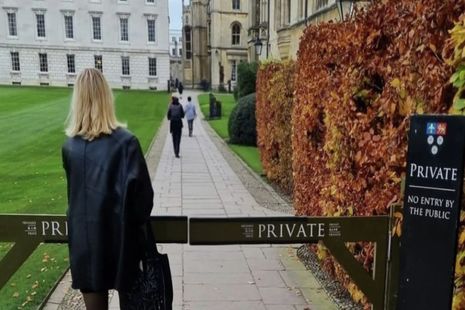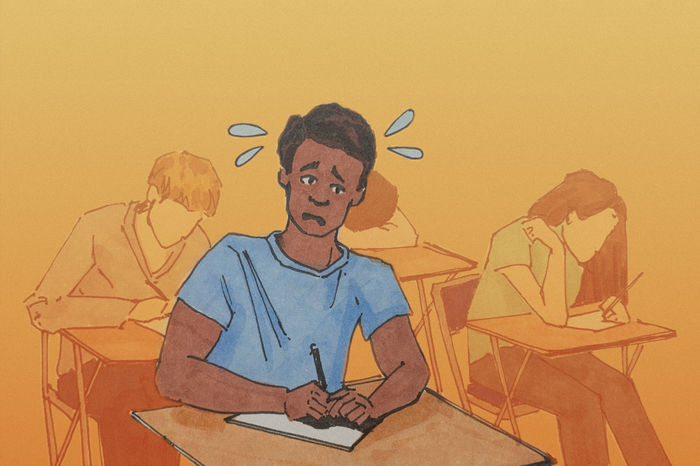Incoming freshers and their hopes, fears and expectations for Cambridge
Chirathi Perera speaks to incoming Cambridge freshers about their fears, hopes, and expectations as they anxiously await the start of term

Before the organised chaos of Fresher’s Fair and matriculation ceremonies, there is a long summer of anticipation. During this time, the concept of Cambridge exists in limbo. It is no longer a distant possibility, but doesn’t feel entirely real yet, either. Instead, Cambridge remains suspended between the customary barrage of emails from colleges and half-filled suitcases. As the heat of August stretches on, what do incoming freshers expect, and how are they preparing for their time at the University?
Theo, an international student set to study HSPS at Trinity makes no attempt to hide his curiosity. “I have so many questions,” he texted me not long after his offer was confirmed. “How’s the food there? Because I’ve heard London university food is horrendous. Also, do you have insider hacks to getting a better room?” I had to admit, to his dismay, that the fresher’s accommodation ballot is not a game of strategy but a roll of the dice. (It gets better in second year, though.)
He’s certainly not alone in his anticipation. Across various group chats, forums, and social media, the incoming cohort trades notes on everything from what kind of duvet to bring, to whether a rice cooker is allowed. There’s a sense of communal guessing involved, with everyone trying their best to be the most prepared.
“Even for the most high-achieving offer-holders, the transition from structured school life to the Cambridge academic system seems intimidating”
These preparations are often guided by preexisting perceptions. Cambridge’s reputation precedes it, forming a double edged sword in terms of what one can expect as a student. On the one hand, the prospect of being surrounded by ambitious and hardworking peers can be thrilling. Leah, an incoming student at Downing college shares that one stereotype she’s expecting to be proven correct is “mainly just that people there [Cambridge] will be super smart, which I think is really cool.”
On the other hand, expectations of academic excellence and rigour can be daunting. Before I even stepped foot in Cambridge last Michaelmas, I thought that it would be an academic pressure cooker where everyone was studying all the time, while also miraculously managing to run multiple societies, play a sport and attend every career event in London. Of course, time spent here has proven that this is only true to a certain extent. But even for the most high-achieving offer-holders, the transition from structured school life to the Cambridge academic system seems intimidating.
For some, like Yara, an incoming History student at Sidney Sussex, the pressure looms in the form of academic uncertainty. “I’m most nervous about the course itself, and how intense it will be,” she admits. “I’m trying to get through some reading for my course, but it is going excruciatingly slowly.”
“Not all freshers arrive at the same starting line when they walk through the doors of their college”
Not all freshers arrive at the same starting line when they walk through the doors of their college. Background can shape one´s readiness, not just academically, but in terms of adapting to Cambridge traditions and social expectations. Leah acknowledges that being prepared for Cambridge can begin long before you receive your offer: “I’m lucky to have experienced a private boarding school which may have prepared me well for some of the formalities of Cambridge.”
And it isn’t just your previous educational background that can help – access to the candid perspective of current students can bring some much needed clarity. Yara, who already knows several current students, admits that this familiarity has been a source of comfort. “It’s made me feel more confident and less nervous about attending,” she says. “They’ve been immensely helpful and supportive, so I feel more prepared for when I arrive in Michaelmas. It also makes me feel like I already have a built-in support system, even if I do begin to struggle with adjusting.”
In contrast, arriving in Cambridge without a built-in support system can feel “a bit like jumping from a cliff and not really knowing where you’ll land,” according to Emma, a second-year international student studying Hispol. “No one from my school or family had ever attended Oxbridge, or even studied abroad,” she says as she reflects on her experience as a fresher. As a result, the college system and age-old traditions felt “totally foreign”.
However, a sense of belonging and community can still be created, if not immediately, then gradually, through the shared chaos of first term. Leah shares that what excites her most, besides learning more about her subject, are the many opportunities to get involved in team sports. “I look forward to playing cricket and maybe even hockey at the college level,” she says.
Similarly, Yara says that she “would like to join the powerlifting club.” “I’m also looking forward to joining the Cambridge Majlis and the Cambridge Union,” she says. An influx of welcome posts and messages from every club and society are a common feature of results day.

Friends, rivals, coursemates: on competition and camaraderie in Cambridge
Before the freshers know it, the reality of Cambridge will replace its mythos. Gowns will be donned, ice-breakers will be endured, first supos will be completed, and the surreal will eventually become routine. The good news is that there is no singular “right” way to start off your time at Cambridge. Equally, there really is no need to agonize over preparing perfectly. Michaelmas is for making mistakes (and learning from them.
 News / Judge Business School advisor resigns over Epstein and Andrew links18 February 2026
News / Judge Business School advisor resigns over Epstein and Andrew links18 February 2026 News / Hundreds of Cambridge academics demand vote on fate of vet course20 February 2026
News / Hundreds of Cambridge academics demand vote on fate of vet course20 February 2026 News / Petition demands University reverse decision on vegan menu20 February 2026
News / Petition demands University reverse decision on vegan menu20 February 2026 News / CUCA members attend Reform rally in London20 February 2026
News / CUCA members attend Reform rally in London20 February 2026 News / Gov grants £36m to Cambridge supercomputer17 February 2026
News / Gov grants £36m to Cambridge supercomputer17 February 2026









